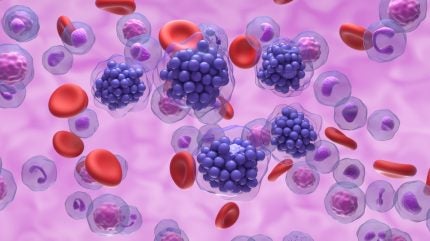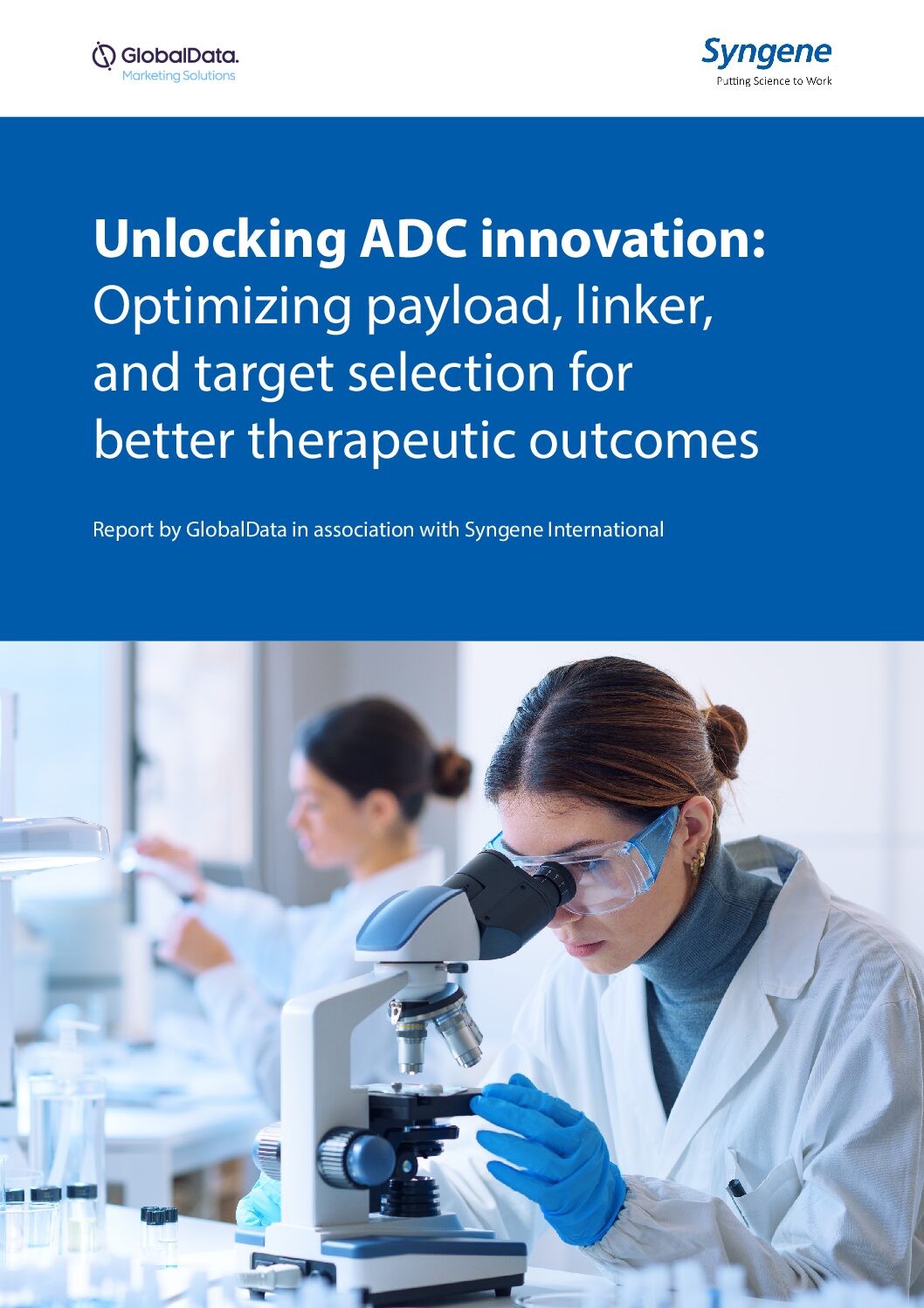

Zilovertamab vedotin, an antibody drug conjugate (ADC) developed by Merck & Co (MSD) to treat diffuse large B-cell lymphoma (DLBCL), has demonstrated promise in a Phase II/III study, as the company looks to catch up with ADC Therapeutics’ marketed drug.
When administered in combination with standard of care, rituximab and gemcitabine-oxaliplatin (R-GemOx), zilovertamab vedotin achieved an objective response rate (ORR) of 56.3%. At this pre-planned analysis, there were eight complete responses (CR) and one partial response (PR). The median follow-up in this 1.75mg/kg cohort was 9.9 months.

US Tariffs are shifting - will you react or anticipate?
Don’t let policy changes catch you off guard. Stay proactive with real-time data and expert analysis.
By GlobalDataADC Therapeutics’ Zynlonta (loncastuximab tesirine-lpyl) is the only ADC approved by the US Food and Drug Administration (FDA) for DLBCL. In the Phase II LOTIS-2 trial, Zynlonta – administered as a monotherapy – produced an ORR of 48.3%.
MSD published a snapshot of the results from the ongoing waveLINE-003 study (NCT05139017) ahead of a presentation on 30 May at the 2025 American Society of Clinical Oncology (ASCO) Annual Meeting, held from 30 May to 3 June in Chicago, Illinois.
The positive efficacy results came despite a patient dying in the highest dose cohort due to treatment-related sepsis.
MSD’s randomised, multicenter, open-label, dose confirmation and expansion waveLINE-003 study is investigating the zilovertamab vedotin triplet combination therapy as a treatment for relapsed or refractory DLBCL. Patients with blood cancer who have already tried one more line of therapy are eligible for the treatment, administered intravenously every three weeks up to six cycles at three different doses.
MSD disclosed that treatment-related adverse events (TRAEs) were reported in 98% of patients (n=40), with those at Grade 3 or higher occurring in 63% of patients. At the highest dose of 2.0mg/kg, three patients discontinued treatment due to adverse events, one patient withdrew due to a physician’s decision, and one patient died after discontinuing treatment due to related sepsis. At this dose, three patients completed the treatment, compared to the eight from the 1.75mg/kg dose. MSD said that based on safety and efficacy data, the recommended Phase II dose is 1.75g/kg.
Zilovertamab vedotin is an ADC that targets ROR1, which is a transmembrane protein overexpressed in multiple haematologic malignancies.
The ADC market was valued at $8.6bn in 2023, with it forecast to exceed $45bn by 2030, according to analysis by GlobalData. MSD’s data arrived on the same day that Germany-based Merck KGaA, also presenting at ASCO, revealed positive Phase I results for its ADC candidate for metastatic colorectal cancer treatment.
GlobalData is the parent company of Pharmaceutical Technology.
MSD Research Laboratories’ oncology clinical research vice president Dr Gregory Lubiniecki said: “In the Phase II portion of the waveLINE-003 trial, the 1.75mg/kg dose of zilovertamab vedotin with rituximab, gemcitabine and oxaliplatin demonstrated a promising response rate, complete response rate and manageable safety profile in combination with standard of care.
“The Phase III portion of this trial is already enrolling, and as we continue to advance our research of this investigational ROR1-directed ADC, these promising results amplify our belief in the potential of zilovertamab vedotin to treat multiple hematologic malignancies.”
Zilovertamab vedotin is also currently being evaluated in patients with previously untreated DLBCL in the Phase III waveLINE-010 study (NCT06717347) and the Phase II waveLINE-007 study (NCT05406401).
ADC content on Pharmaceutical Technology (Or Clinical Trials Arena) is supported by Syngene. Editorial content is independently produced and follows the highest standards of journalistic integrity. Topic sponsors are not involved in the creation of editorial content.






